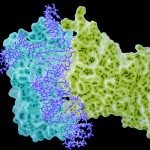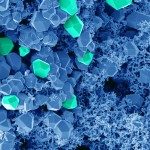Présentation
Department of Structural Biology and Chemistry
Mardi 26 novembre 2019 à 14h00
Auditorium François Jacob – Bâtiment François Jacob
Dr. Xavier Morelli
Cancer Research Center of Marseilles
Integrated strategy for hit-to-lead optimization: the (Cova)DOTS approach (‘Diversity Oriented Target-focused Synthesis’)
In recent decades, the identification of hits in the pharmaceutical industry and academic research has been greatly facilitated by advances in high throughput screening (HTS) and the design of chemical libraries. One of the main remaining obstacles in drug discovery is related to the automation of the process of optimizing the hit-to-lead (H2L). We present here an integrated strategy for the H2L optimization phase and the automated design of chemical probes. Our Diversity Oriented Target-focused Synthesis (DOTS* & CovaDOTS§) approach consists of a virtual screening library design coupled with a de novo robotic synthesis focused on diversity and an automated in vitro evaluation platform. After the identification of the ‘hits’ by HTS, the binding mode of the molecule is usually determined at the atomic level using structural methods such as X-ray crystallography. In our ‘DOTS’ approach, a focused virtual library is generated by combining an activated fragment corresponding to the binding of the substructure to the target with a collection of functionalized chemical blocks using in silico encoded chemical reactions. These reactions are carefully selected from a list of reactions described as relevant in medicinal chemistry and known to give high yields, which greatly limits failure rates. Target-specific compounds are selected by virtual screening, followed by in vitro synthesis and evaluation using our robotic platform. The proof of concept was demonstrated by optimizing bromodomain inhibitors, leading to the validation of several compounds with an improved affinity of several orders of magnitude. The proposed process can be implemented in academic environments or biotechnology companies that require automation of these processes.
Contact : Florence Cordier
Bioinformatique Structurale
Florence.cordier@pasteur.fr



